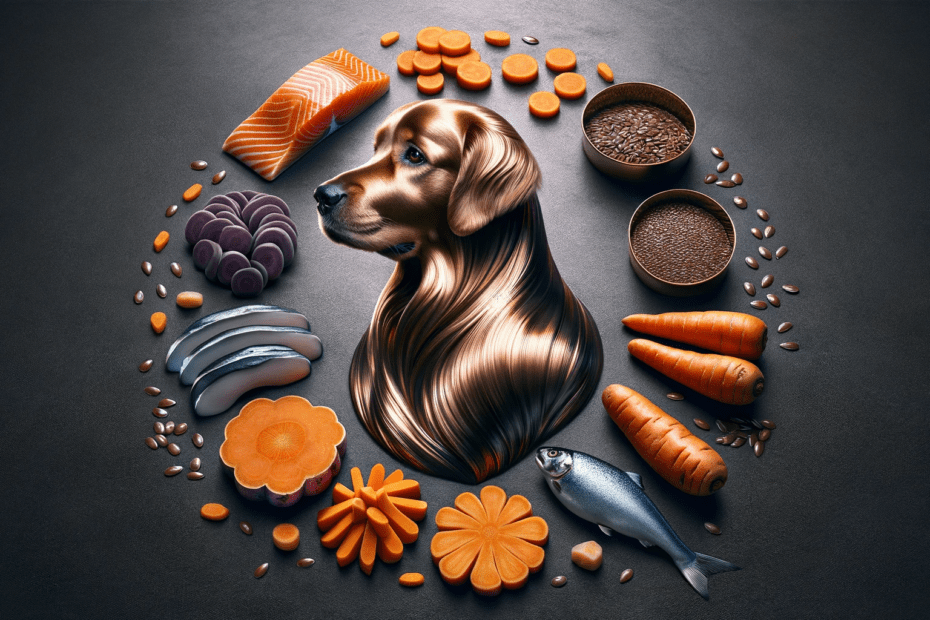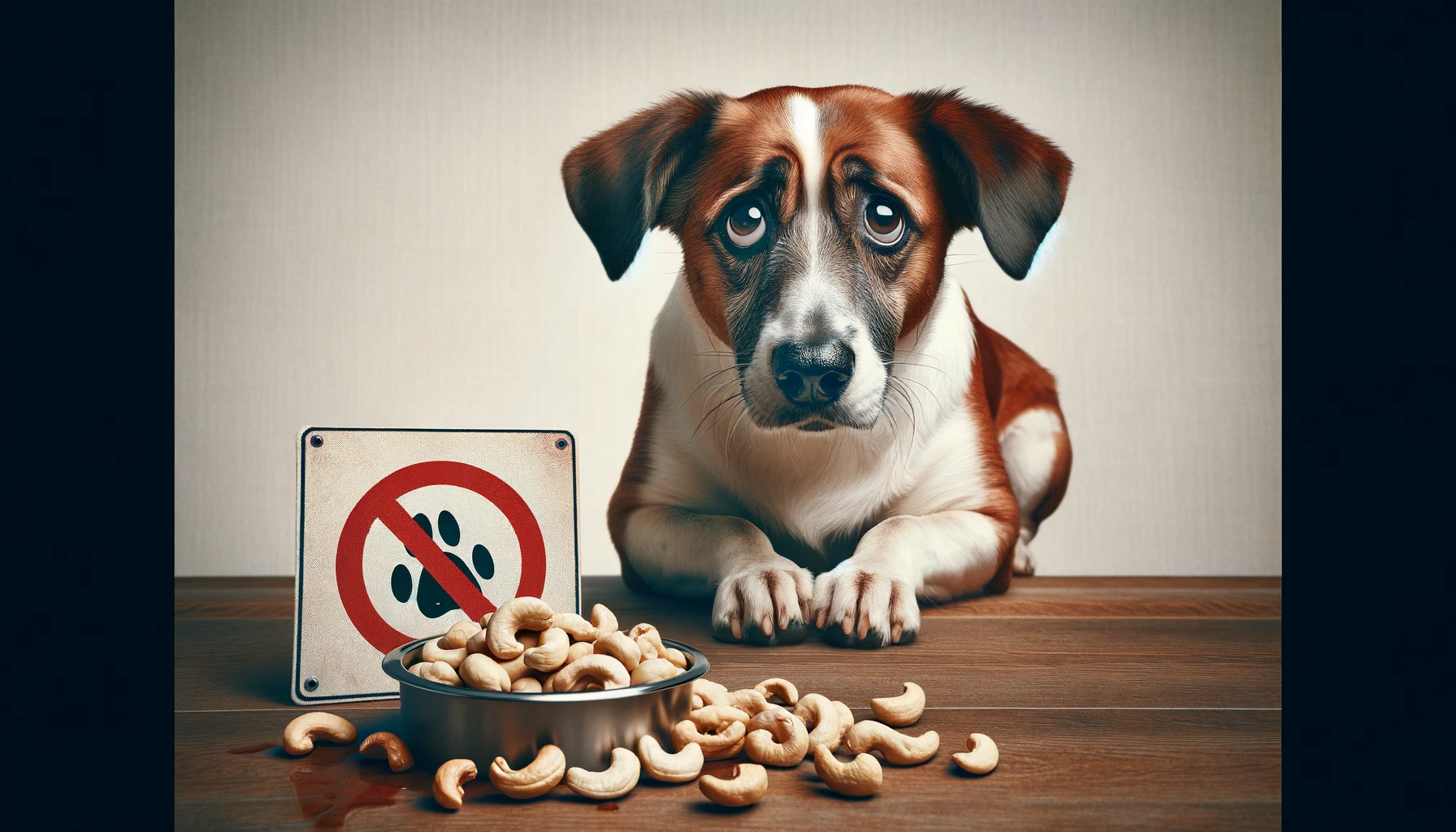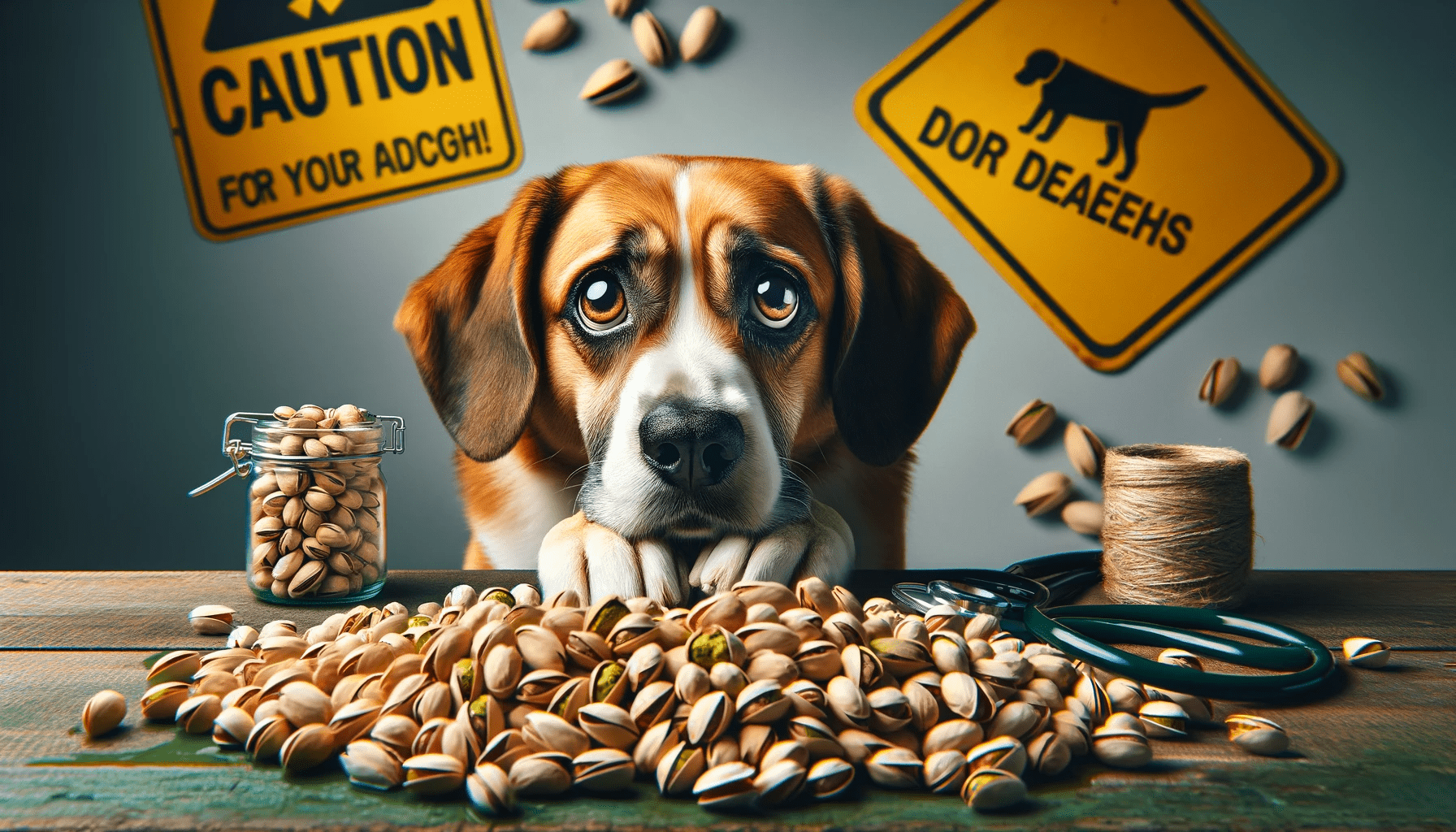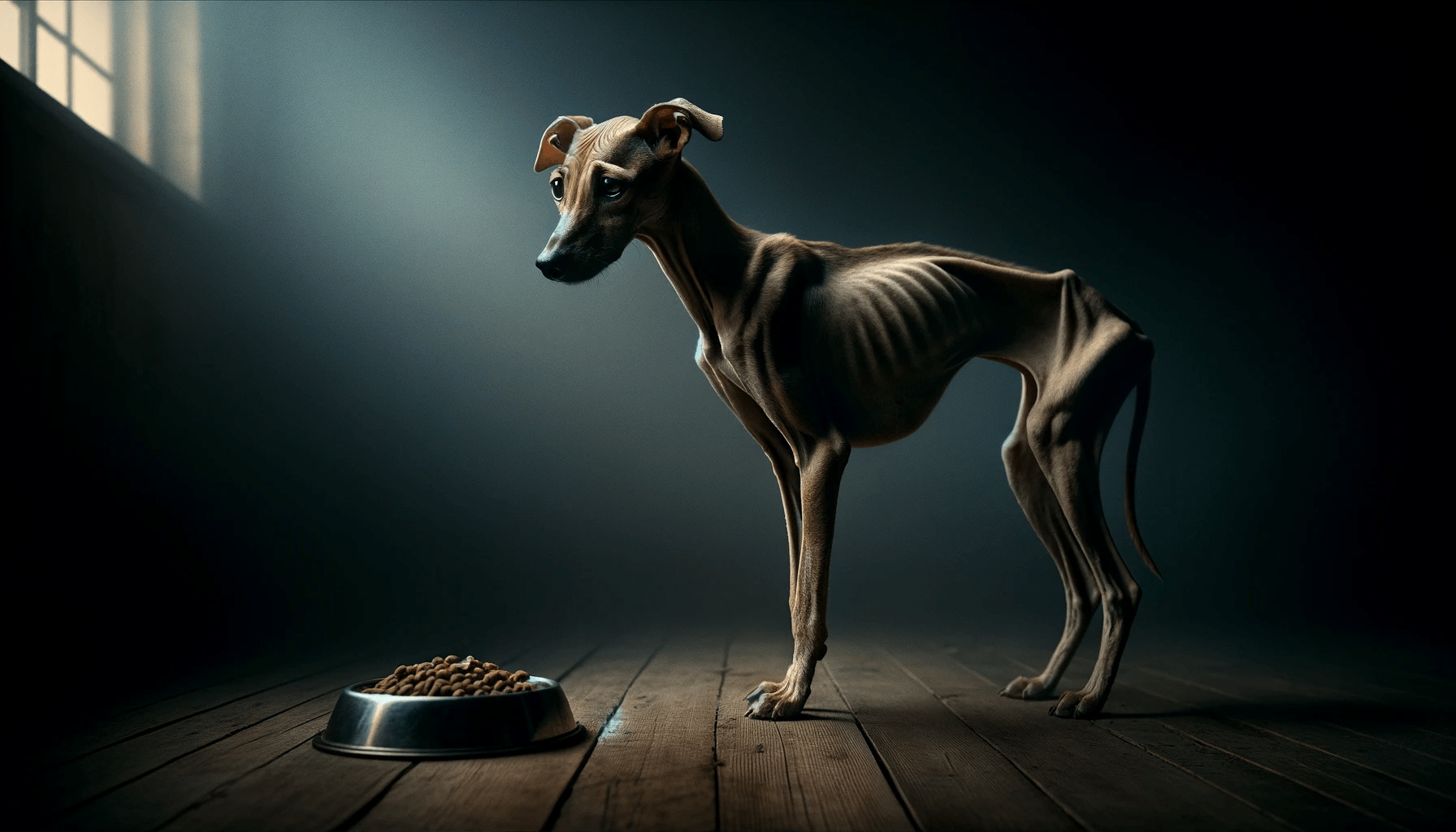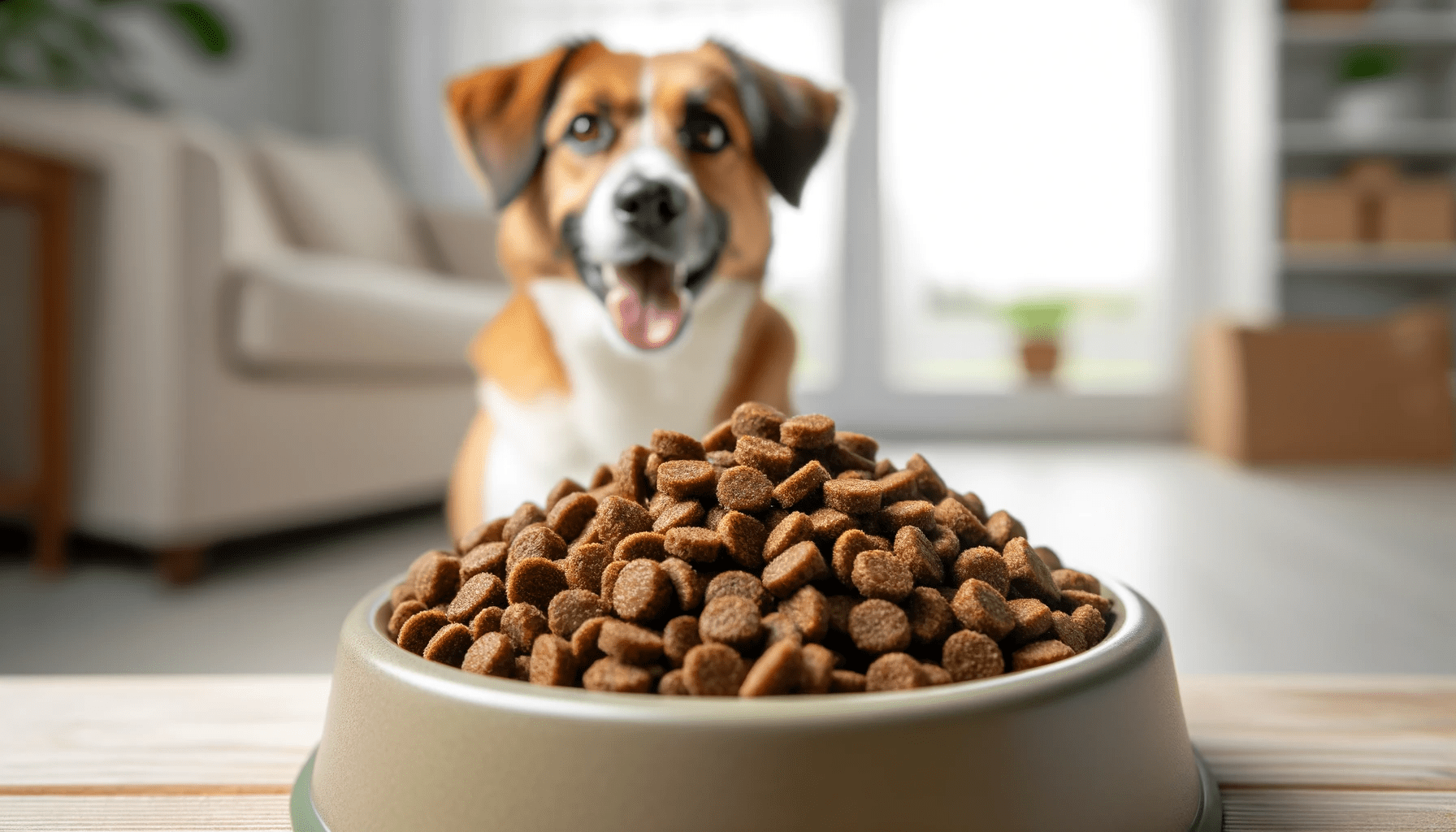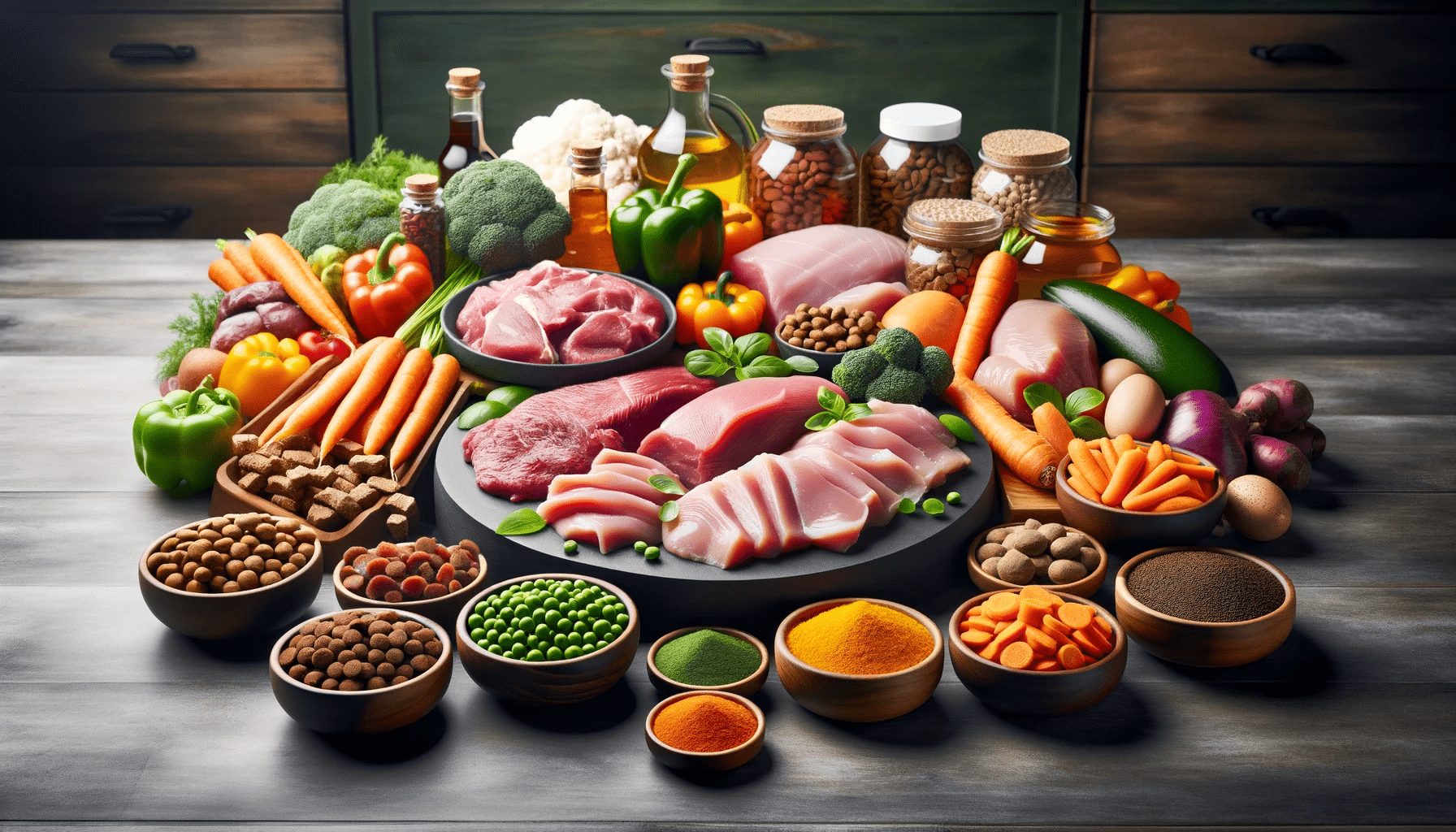Want to keep your dog's coat and skin healthy and shiny? Look no further! In this article, we'll share with you the 9 best nutrition tips that will help improve your furry friend's coat and skin condition.
From the importance of balanced nutrition to essential nutrients and supplements, we've got you covered. Say goodbye to dull coats and dry skin, and hello to a vibrant and healthy pup!
Let's get started!
Key Takeaways
- A well-balanced diet that includes essential nutrients such as proteins, vitamins, minerals, and fatty acids is crucial for maintaining a healthy skin and coat.
- Omega-3 fatty acids, found in sources like fish oil, flaxseed, and chia seeds, promote a shiny coat and alleviate skin irritation.
- Proper hydration, regular grooming, and incorporating moisturizing agents like coconut oil and aloe vera are important for maintaining skin moisture and preventing dryness and itching.
- Antioxidant-rich foods, such as blueberries, spinach, and carrots, can protect the skin and coat from damage and reduce inflammation. Additionally, managing allergies through diet and using hypoallergenic dog food can help improve skin and coat condition.
The Importance of Balanced Nutrition
To maintain a healthy coat and skin for your dog, it's essential to provide them with a well-balanced diet. A balanced diet ensures that your furry friend receives all the necessary nutrients for optimal health and overall well-being. When it comes to their coat and skin, a balanced diet plays a crucial role in promoting a lustrous, shiny coat and preventing skin issues.
A balanced diet provides the necessary nutrients that are vital for proper skin and coat health. These nutrients include proteins, vitamins, minerals, and fatty acids. Proteins are essential for building and repairing tissues, including the skin and coat. Vitamins and minerals, such as vitamin A and zinc, support healthy skin and hair growth. Fatty acids, specifically omega-3 and omega-6, help maintain a shiny coat and reduce inflammation.
Furthermore, a balanced diet enhances nutrient absorption, which is vital for your dog's skin and coat health. Nutrient absorption refers to the process by which the body absorbs and utilizes nutrients from food. When your dog receives a balanced diet, their digestive system functions optimally, allowing for better absorption of essential nutrients that contribute to healthy skin and a shiny coat.
Essential Nutrients for Skin and Coat Health
You need to ensure that your dog's diet includes essential nutrients for maintaining healthy skin and a shiny coat. The condition of your dog's skin and coat is directly influenced by the nutrients they consume. Here are two essential nutrients that play a crucial role in maintaining skin and coat health:
- Essential Fatty Acids: Omega-3 and Omega-6 fatty acids are essential for your dog's skin and coat health. These fatty acids help in reducing inflammation, maintaining skin moisture, and promoting a shiny coat. Fish oil, flaxseed oil, and certain types of fish like salmon are excellent sources of these essential fatty acids.
- Vitamin Deficiency: A deficiency in certain vitamins can lead to skin and coat problems in dogs. Vitamin A is important for cell growth and repair, while vitamin E is an antioxidant that protects the skin from damage. Biotin, a B-complex vitamin, is essential for healthy skin and coat as well. Ensure that your dog's diet includes foods rich in these vitamins, such as liver, eggs, green leafy vegetables, and whole grains.
Omega-3 Fatty Acids for a Shiny Coat
Maintaining a shiny coat for your dog can be achieved by incorporating omega-3 fatty acids into their diet. Omega-3 fatty acids are essential nutrients that play a crucial role in promoting healthy skin and coat. These fatty acids are known for their anti-inflammatory properties, which can help alleviate skin irritation and promote a lustrous coat.
Omega-3 fatty acids can be found in various food sources, such as fish oil, flaxseed, and chia seeds. However, it may be challenging to ensure your dog gets an adequate amount of omega-3 fatty acids through their regular diet alone. In such cases, nutritional supplements can be a great way to provide your dog with the necessary omega-3 fatty acids for a shiny coat.
Natural remedies, such as fish oil supplements, are commonly used to boost omega-3 fatty acid intake in dogs. These supplements are readily available in the form of capsules or liquid, making it easy to incorporate into your dog's diet. However, it's essential to consult with your veterinarian before introducing any new supplements to your dog's diet to ensure the correct dosage.
Protein-Rich Diet for Strong and Healthy Hair
Incorporating a high-quality, protein-rich diet is essential for ensuring your dog has strong and healthy hair. Protein is the building block of hair, and without enough of it, your dog's hair may become weak and brittle.
Here are some tips to help you provide the right protein for your dog's hair health:
- Plant-based proteins for hair health: Incorporating plant-based proteins, such as lentils, quinoa, and peas, into your dog's diet can provide essential amino acids that are important for hair growth and strength. These plant-based proteins aren't only rich in protein but also contain other important nutrients like vitamins and minerals that promote overall hair health.
- Balancing fats and proteins for a healthy coat: It's not just about protein; a balanced ratio of fats and proteins is also important for a healthy coat. Omega-3 fatty acids, found in fish oil or flaxseed, help nourish the skin and promote a shiny coat. Including sources of healthy fats, like salmon or coconut oil, in your dog's diet can help maintain the health and luster of their hair.
Hydration and Moisture for Skin Health
Ensuring proper hydration and moisture is crucial for maintaining the health of your dog's skin. Adequate hydration helps in maintaining the skin's natural barrier, preventing dryness and itching. Make sure your dog has access to fresh water at all times, especially during hot weather or after vigorous exercise. Hydrated skin is less prone to infections and is better equipped to protect itself from sun damage.
Regular grooming plays a significant role in maintaining your dog's skin health. Brushing your dog's coat helps distribute natural oils, keeping the skin moisturized. It also helps remove dirt, debris, and dead skin cells that can clog pores and lead to skin infections. Additionally, grooming allows you to identify any skin issues early on and seek appropriate treatment.
Natural remedies such as coconut oil or aloe vera can provide additional moisture to your dog's skin. These remedies have soothing properties and can help alleviate dryness and itchiness. However, it's important to consult with your veterinarian before using any new products on your dog.
Exercise also plays a vital role in skin health. Regular physical activity improves blood circulation, which nourishes the skin cells. It also helps reduce stress, which can contribute to skin issues in dogs.
Managing allergies through diet is another way to support your dog's skin health. Some dogs may have allergies that manifest as skin problems. Working with your veterinarian to identify and eliminate potential allergens from your dog's diet can help alleviate skin issues.
Regular bathing is essential for maintaining clean and healthy skin. Use a gentle, dog-specific shampoo that doesn't strip away natural oils. Over-bathing can lead to dryness, so find a balance that works for your dog's specific needs.
Finally, incorporating probiotics into your dog's diet can promote skin health. Probiotics help maintain a healthy gut, which in turn supports a strong immune system and healthy skin.
Antioxidants for Skin and Coat Protection
To protect your dog's skin and coat, it's important to include antioxidants in their diet. Antioxidants are substances that help protect cells from damage caused by free radicals, which can lead to skin and coat issues. By incorporating antioxidant-rich foods into your dog's diet, you can promote their skin and coat health naturally.
Here are two sub-lists of natural remedies that are rich in antioxidants:
- Fruits and vegetables:
- Blueberries: These little berries are packed with antioxidants such as vitamin C and anthocyanins, which can help improve skin health.
- Sweet potatoes: Rich in beta-carotene, sweet potatoes provide essential antioxidants that promote a healthy coat.
- Omega-3 fatty acids:
- Fish oil: This source of omega-3 fatty acids can help reduce inflammation and improve skin and coat condition.
- Flaxseed: Ground flaxseed is an excellent plant-based source of omega-3 fatty acids, which can aid in maintaining a healthy skin barrier.
Incorporating these antioxidant-rich foods into your dog's diet can provide them with the necessary nutrients to protect their skin and coat. Remember, a balanced diet is key to maintaining your furry friend's overall health.
Avoiding Allergens and Food Sensitivities
To prevent skin and coat issues, it's important for you to be mindful of potential allergens and food sensitivities in your dog's diet. Allergies and sensitivities can cause a variety of symptoms in dogs, including itching, redness, rashes, and inflammation. To avoid these problems, consider transitioning your dog to an allergen-free diet or hypoallergenic dog food.
An allergen-free diet eliminates common food allergens such as wheat, corn, soy, and dairy. These ingredients can trigger allergic reactions in some dogs, leading to skin and coat problems. Hypoallergenic dog food, on the other hand, is specially formulated to minimize the risk of allergic reactions. It usually contains novel protein sources and limited ingredients to reduce the likelihood of triggering allergies.
When selecting an allergen-free diet or hypoallergenic dog food, it's important to read the labels carefully. Look for options that are specifically labeled as 'allergen-free' or 'hypoallergenic.' Additionally, consult with your veterinarian to determine the best diet for your dog's specific needs.
Supplements for Optimal Coat and Skin Condition
To maintain optimal coat and skin condition for your dog, consider adding supplements to their diet. Supplements can provide essential nutrients that may be lacking in their regular food.
Here are some supplements that have been found to be effective in promoting a healthy coat and skin for dogs:
- Omega-3 fatty acids: These fatty acids are known for their anti-inflammatory properties and can help reduce itching and dryness in your dog's skin. Look for supplements that contain EPA and DHA, and follow the dosage recommendations provided by the manufacturer.
- Biotin: Biotin is a B-vitamin that plays a crucial role in maintaining healthy skin and coat. It can help improve the strength and texture of your dog's fur. Dosage recommendations for biotin supplements can vary, so it's best to consult with your veterinarian.
When choosing a supplement for your dog, it's important to consider the effectiveness and dosage recommendations. Look for supplements that have been tested and proven to be effective in promoting a healthy coat and skin. Additionally, always follow the recommended dosage instructions provided by the manufacturer or consult with your veterinarian for personalized recommendations based on your dog's specific needs.
Tips for Implementing a Nutritious Diet
When it comes to implementing a nutritious diet for your dog's coat and skin health, there are a few key points to keep in mind.
First, make sure your dog's diet includes essential nutrient sources, such as high-quality protein, omega-3 fatty acids, and vitamins like A and E.
Secondly, consider dietary adjustments based on your dog's specific needs, such as addressing food allergies or sensitivities.
Essential Nutrient Sources
By incorporating nutrient-rich foods into your dog's diet, you can ensure they receive the essential nutrients necessary for a healthy coat and skin. Providing a balanced and nutritious diet is key to maintaining your dog's overall health and well-being.
Here are some essential nutrient sources you should consider:
- Protein: High-quality animal protein sources such as chicken, beef, and fish provide amino acids that are essential for healthy skin and coat.
- Omega-3 Fatty Acids: Fish oil and flaxseed are excellent sources of omega-3 fatty acids, which can help reduce inflammation and promote a shiny coat.
- Vitamins and Minerals: Fruits and vegetables like carrots, spinach, and blueberries are packed with vitamins A, C, and E, as well as minerals like zinc and selenium, which are crucial for healthy skin.
Dietary Adjustment Strategies
How can you ensure a nutritious diet for your dog to promote a healthy coat and skin? One of the most effective ways is through dietary adjustment strategies. By making appropriate changes to your dog's diet, you can provide them with the necessary nutrients to support a lustrous coat and healthy skin.
These dietary adjustments have numerous benefits for your dog's overall health and well-being.
Firstly, dietary adjustments help meet your dog's specific nutritional requirements. Different breeds and sizes have varying needs, and adjusting their diet can ensure they receive the right balance of proteins, fats, vitamins, and minerals. These nutrients play a crucial role in maintaining a healthy coat and skin.
Furthermore, dietary adjustments can address specific skin and coat issues. For example, increasing the intake of omega-3 fatty acids can improve dry skin and reduce inflammation. Adding antioxidant-rich foods, such as blueberries or spinach, can help combat oxidative stress and promote a shiny coat.
Frequently Asked Questions
How Often Should I Bathe My Dog to Maintain a Healthy Coat and Skin?
You should bathe your dog regularly to maintain a healthy coat and skin. Regular grooming is important for their overall well-being. It helps remove dirt, excess oils, and keeps their skin clean and free from infections.
Can Certain Foods Cause Skin Allergies in Dogs?
Certain foods can cause skin allergies in dogs. Common symptoms include itching, redness, and rashes. It's important to be aware of these triggers and consult with your vet to ensure a balanced diet for your dog's coat and skin health.
Are There Any Specific Dog Breeds That Require a Different Diet for Coat and Skin Health?
Different dog breeds may require specific diets for optimal coat and skin health. Incorporating omega-3 fatty acids is essential for maintaining a healthy coat. These nutrients can improve skin condition and reduce inflammation, benefiting breeds prone to skin issues.
Should I Be Concerned if My Dog's Coat Becomes Dull and Dry?
If your dog's coat becomes dull and dry, it could be due to various factors such as inadequate nutrition, allergies, or underlying health issues. Consult a vet for a proper diagnosis and follow their recommendations to improve your dog's coat health.
Can I Give My Dog Human Supplements for Their Coat and Skin Health?
Giving your dog human supplements for coat and skin health may have potential risks and benefits. However, it's best to consult with a veterinarian before making any decisions to ensure your dog's safety and well-being.
Conclusion
In conclusion, providing your dog with a balanced and nutritious diet is essential for maintaining a healthy coat and skin. Incorporating omega-3 fatty acids, protein-rich foods, and antioxidants can contribute to a shiny coat and protect against skin issues.
Additionally, ensuring proper hydration and avoiding allergens can further promote skin health. Consider consulting with a veterinarian and incorporating supplements to optimize your dog's coat and skin condition.
Remember, a healthy diet is the key to a happy and vibrant furry companion.
